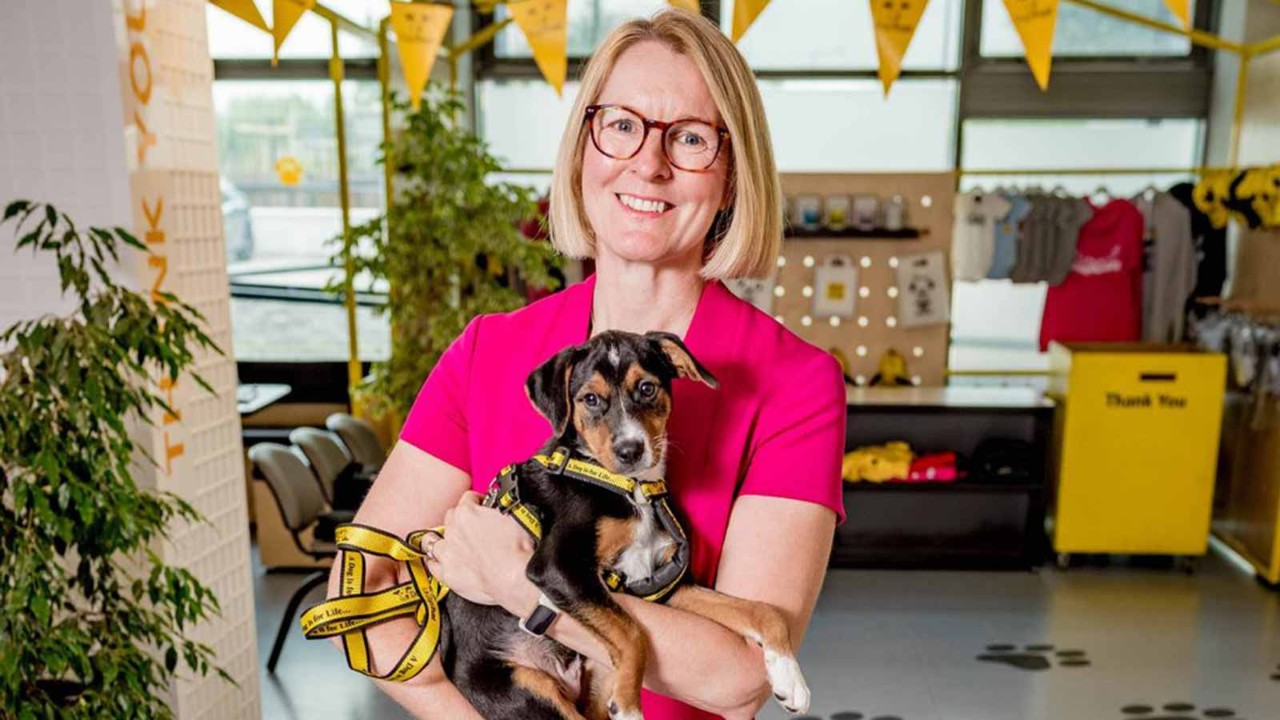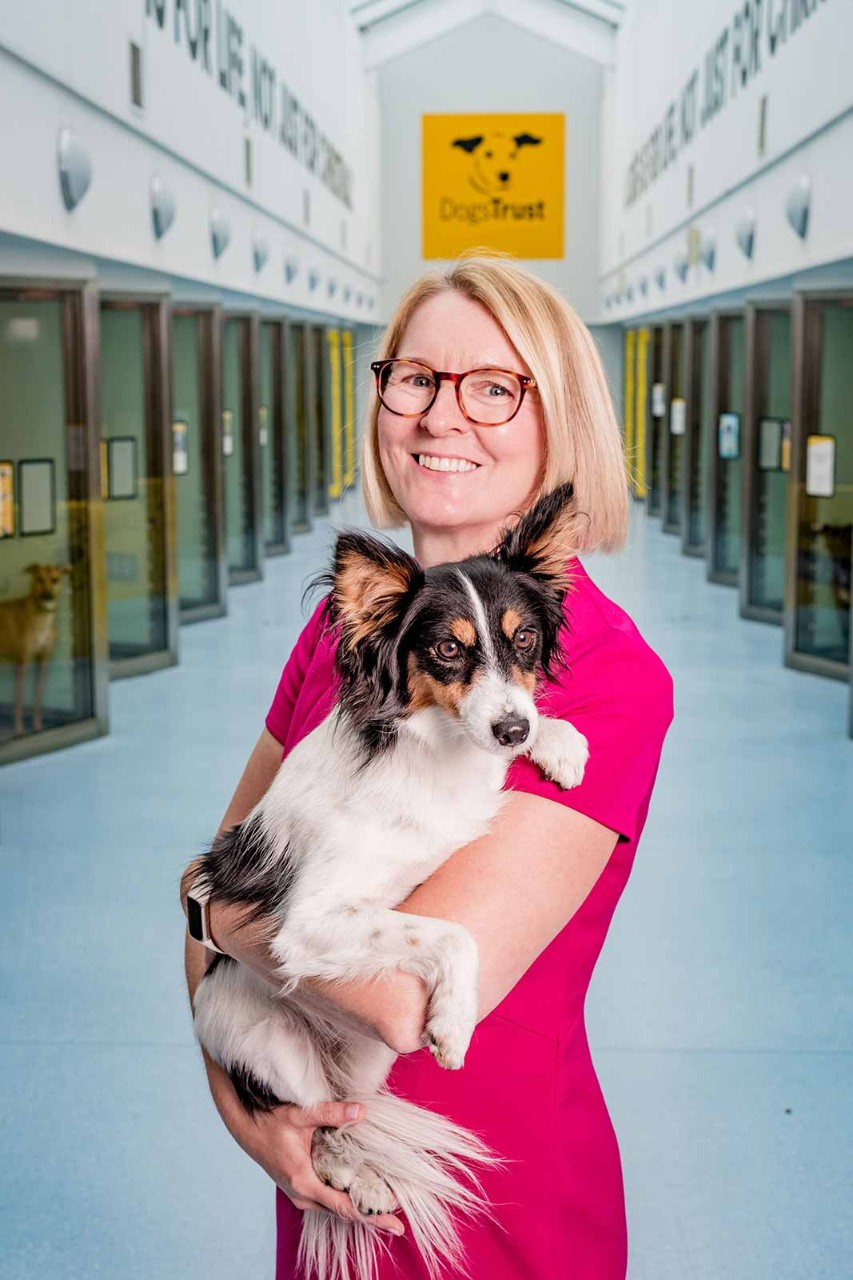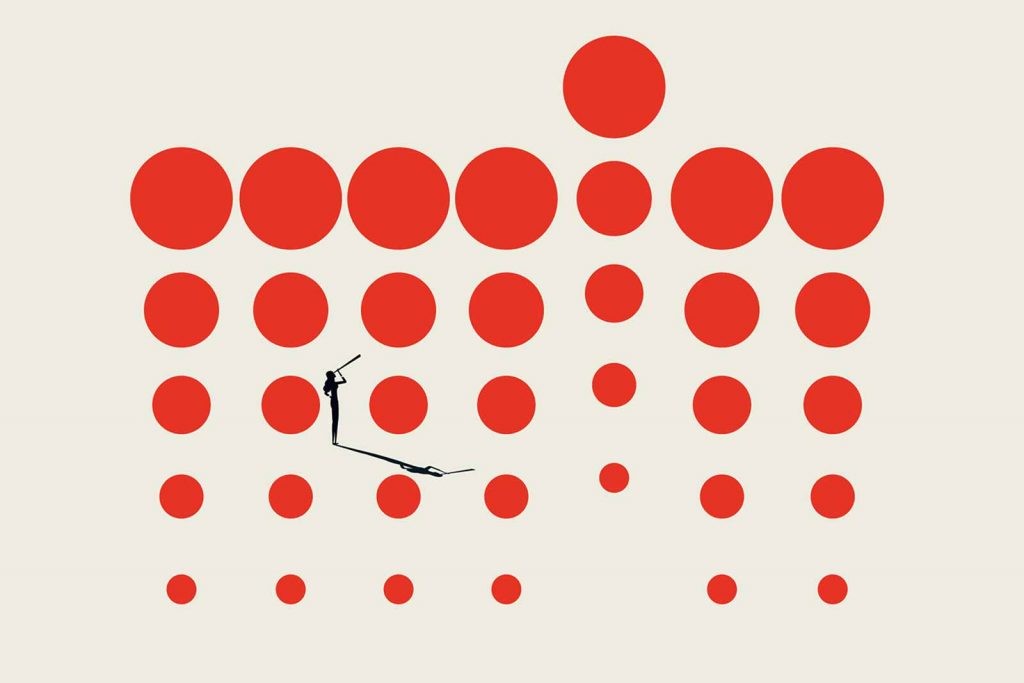
The cautionary reminder that ‘a dog is for life, not just for Christmas’ has become so embedded in popular culture that it may be a surprise to know how recent its origins are. It is, in fact, a copyrighted slogan, coined by the charity Dogs Trust over 40 years ago, and while it would be comforting to believe its message is now fully understood, the sad reality is that issues of neglect, cruelty, abandonment and exploitation continue to mar our relationship with man’s best friend.
Long established as the leading organisation in its field in the UK, Dogs Trust set up in Ireland in 2005, opening its state-of-the-art rehoming facility in north Dublin in 2009. As Becky Bristow FCCA, executive director, Dogs Trust Ireland (DTI), explains, the decision to invest in the country was less about expansionary prowess and more a reflection of the seriousness of the issues here.
'Attitudes to animal welfare were far behind the UK and extraordinary numbers of dogs were being abandoned'
CV
2019
Executive director, Dogs Trust Ireland
2006
Joined Chartered Accountants Ireland as director, lifelong learning and practice consulting, rising to director, operations and development – member services
2004
Senior business analyst, ING Australia
1999
Tax consultant, William Fry Solicitors
1993
Tax senior, PwC Ireland
‘The CEO of DT UK at the time, Clarissa Baldwin, was in regular contact with veterinarians and animal welfare groups in Ireland, and could see the enormity of problem here,' she says. 'Attitudes to animal welfare at the time were far behind the UK and extraordinary numbers of dogs were being abandoned and ending up in pounds. Up to 30,000 could be euthanised in one year. That figure is now thankfully down to about one a day.’
A second issue that persuaded Dogs Trust to set up here has, however, almost certainly become worse in the intervening years. ‘Unscrupulous puppy farming was a major problem then and it continues to thrive in Ireland,’ Bristow says. ‘Most recently, during the pandemic years, puppy prices and demand soared, especially for curly “designer crossbreeds”, which became big business and for which the UK is a key market.’
Complex issues
While the issues of abandonment and neglect that drive the charity’s work are invariably distressing, Bristow says the reasons behind them can be complex. ‘Our experience is that people rarely abandon a dog flippantly,’ she says.
‘Some are first-time owners who simply didn’t understand the responsibility involved in having a dog or have found the pup they bought from a puppy farm has behavioural or health issues they can’t handle.
'There are also people who have housing issues and have to move to accommodation where they can’t have a pet. The cost-of-living crisis is a looming issue, and a growing number of people are finding they can’t afford to feed their dog or to pay for veterinary care.’
Getting the public to think twice before making a decision they regret and to better meet their obligations as dog owners involves an ongoing programme of education, outreach, awareness building and campaigning.
DTI’s achievements over the past 17 years speak to success on many fronts: it has rehomed more than 21,000 dogs since 2009; facilitated the neutering of more than 125,000 dogs; delivered 19,500 educational workshops; and, since 2019, provided 1,500 dog-school classes. A planned National Training Academy (for humans) is the next step in making education on responsible dog ownership more easily accessible.

A life-long love
Bristow joined Dogs Trust as executive director in 2019 and today leads a dedicated team of 85 people, supported by annual funding of €7.5m. It is her first role in the charity sector and, she acknowledges, the move surprised some who knew her from her previous position as director of member services with Chartered Accountants Ireland, as well as her earlier roles in tax consultancy and business analysis.
Her career path, she points out, never concealed an abiding, life-long love of animals. ‘Realistically, this is the role I have wanted since I was six years old,' she says. 'I was always bringing home injured animals to my mother, who was a nurse, in the hope she could save them. There has always been something in my life connected with helping animals.’
Dogs Trust allows her to seamlessly merge this love of animals with her business acumen. The 10-year strategy she initiated in 2020 begins with the pointed question: ‘If dogs could talk, what would they ask of us?’
Happily, Bristow can already point to a number of successes that might set tails wagging: DTI achieved financial self-sufficiency for the first time in 2021; it broadened the reach of its rehoming services to national level in 2020; and its intensifying social media presence is making it an effective force on animal welfare issues.
‘When I came on board, we were well established but still reliant on the parent operation for up to 40% of our income,' she says. 'We are now fully funded by Irish donors. We were also transferring up to a thousand dogs a year to the UK for rehoming.
'By the end of 2020, our rehoming process had evolved from a Dublin-based, centralised operation to a national network of fosterers and local kennels. We are no longer sending dogs to UK.’
Digital shift
The pandemic, while hardly lacking in challenges, proved an unlikely catalyst for much of this transformation. ‘We closed to the public but worked out how to keep taking in dogs and rehoming them, all the while keeping our team and the potential adopters safe,' Bristow says.
'We were used to dealing with potentially fatal canine viruses, so we actually had an advantage in knowing how to control the spread of disease.’
With face-to-face fundraising no longer possible, a shift to digital fundraising and greater use of social media also proved a potent combination. ‘People were stuck at home and looking for something worthwhile to contribute to,' Bristow says. 'Our online content proved incredibly engaging to many as we focused on the positives of what contributing to our work would achieve.’
'You can't just rely on an accounting qualification; you have to keep upskilling'
Basics
2005
Dogs Trust Ireland is established
€11.96m
Income in 2020 (up from €9.25m in 2019)
76%
Annual increase in corporate giving in 2020
21,000
Number of dogs and puppies rehomed since purpose-built centre opened in 2009
People skills
Graduating from Trinity College Dublin with a degree in business, economics and social studies in 1993, Bristow began studying for ACCA after securing a role with PwC’s taxation services. ‘I loved the sense of problem solving and possibility that came with tax, but I also quickly realised I was missing a skillset I needed to progress. ACCA offered this, and it also had the global recognition that was important to me as I wanted to travel.’
A move to Australia shortly after qualifying proved her confidence to be well placed. ‘I can honestly say ACCA transformed my career at this point,' Bristow says. 'In Australia, if you are a qualified accountant then you are seen as a qualified businessperson. Very quickly, I got opportunities and roles that I wouldn’t have in Ireland.’
After ‘five wonderful years in Sydney’, it was time to give Ireland another chance. A qualified executive coach, Bristow has 'an absolute passion for people developing themselves’. A position with the Institute of Chartered Accountants would eventually evolve into the role of director, operations and development – member services.
Her time there coincided with the financial crisis, which left many accountants grappling with financial difficulties and sometimes unemployment. As she helped members adapt to this rapidly changed reality, ‘what became clear was how important post-qualification training was. You can't just rely on an accounting qualification; you have to keep upskilling, so I really pushed the importance of leadership skills and training around emotional intelligence.’
Taking the fight
Those skills are critical if DTI is to achieve its biggest ambition in the coming years, which is to see puppy farming effectively eliminated in Ireland. ‘Dogs are being bred in abhorrent conditions. The regulations needed aren’t in place, and those that are in place are not being enforced adequately,’ Bristow says. DTI launched its #EndPuppyFarming campaign in November last year, supported by a TV advertisement asking the public to research carefully where they are buying their puppy from.
It may not win the battle overnight, but it’s clear that DTI is in a better place than ever to take on the fight. Three years into the role she dreamed of as a child, Bristow acknowledges that while there are hills to climb there is already much to be proud of.
‘We have become self-sufficient in financial and welfare terms and can now stand on our own two feet,' she says. 'We have a clear strategy that provides a vision for our donors and the people who work with us. As an organisation, we have matured to the next phase.’


